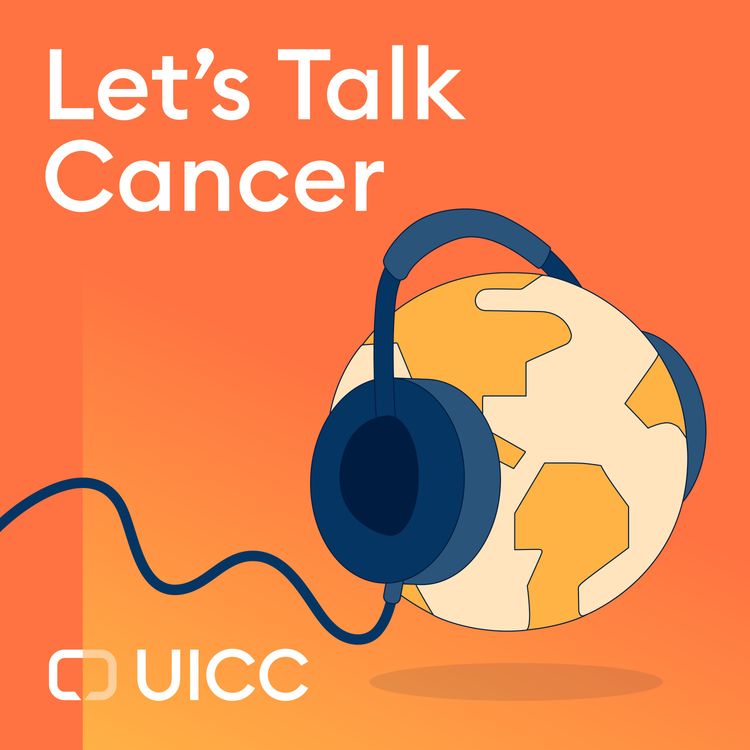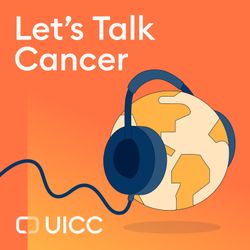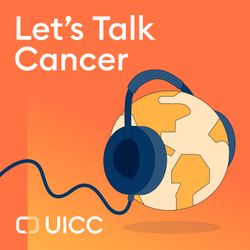Share

Let's Talk Cancer
Superbugs and drug resistance: a threat to humanity
Drug resistance is one of the most serious health threats facing humanity. Bacteria, fungi, viruses, and parasites are learning more and more to resist the medicines that are meant to kill them. These 'superbugs' can spread easily, increasing the risk of prolonged illness, or even death, from common infections. And the danger for cancer patients is particularly high. One of the reasons is the overuse and misuse of antimicrobial medicines.
By 2050, Antimicrobial Resistance (AMR) could cause 10 million deaths per year and cost more than USD 100 trillion to public health - if no action is taken.
On the occasion of World Antimicrobial Awareness Week from 18-23 November, Cary Adams, UICC’s CEO speaks with Professor Dame Sally Davies, UK Special Envoy on Antimicrobial Resistance and former Chief Medical Officer for England.Cary Adams, UICC’s CEO speaks with Professor Dame Sally Davies, UK Special Envoy on Antimicrobial Resistance and former Chief Medical Officer for England.
More episodes
View all episodes

38. Providing supportive cancer care in Egypt
25:48||Ep. 38This new episode of the award-winning Let’s Talk Cancer builds on the recent World Cancer Day campaign theme 'United by Unique' about people-centred cancer care, exploring how comprehensive support can transform the breast cancer journey for women in Egypt and across the region.Cary Adams speaks with Dr Yomna Sherif, Patient Navigation Manager and breast surgeon at the Baheya Foundation in Egypt, a UICC member organisation dedicated to improving outcomes for women with breast cancer, and winner of the World Cancer Day Campaign award in 2024.Together, they look at how Baheya puts people-centred care into practice through services such as patient navigation, practical skills support, and help with transport and accommodation – and how patient-led organisations can shape more responsive, compassionate cancer services in their countries and beyond.
37. World Cancer Day 2025: People Centred Cancer Care with Karen Nakawala
23:39||Ep. 37Podcast “Let’s Talk Cancer” – People-centred are and the power of the patient voiceKaren Nakawala speaks of her experience with cervical cancer, the foundation of Teal Sisters, a UICC member organisation, and the benefits of a people-centred approach to healthcare delivery.
36. Rewriting Cancer: stories of resilience and change in cancer care
20:46||Ep. 36Ahead of World Cancer Day on 4 February and the new campaign, ‘United by Unique,’ focusing on people-centred care, this episode of Let’s Talk Cancer highlights "Rewriting Cancer," a series of short films produced by BBC StoryWorks Commercial Productions for UICC. These films feature the experiences of people with cancer, their loved ones, caregivers, medical professionals, and volunteers worldwide. The series aims to dispel myths and highlight advancements in cancer prevention, diagnosis, treatment, and supportive care. With Gemma Jennings, Vice President at BBC StoryWorks, and James Waddington from the American Cancer Society, a prostate cancer survivor and advocate for early screening.
Antimicrobial resistance (AMR): a rising threat to cancer treatment
26:26|Antimicrobial resistance, also known as AMR or drug resistance, is among the top 10 public health threats facing humanity, according to the World Health Organization.Antimicrobial resistance happens when the medicines, including antiotics, are no longer able to fight infections from bacteria, fungi, viruses and parasites.For cancer patients, the situation is particularly concerning. They have particularly weak immune systems due to the cancer treatment, such as chemotherapy, they are receiving and are therefore more prone to infections. As many as 1 in 5 cancer patients undergoing treatment are hospitalised due to infection. Antibiotics are critical to treat them.Moreover, the growth of drug-resistant bacteria is undermining the key advances that have been made in surgery, radiotherapy and immunotherapies, as treatment is delayed or stopped to treat rising infections.Malin Grape is Sweden’s – and the world’s – first Ambassador on AMR, working to counteract AMR and its consequences in the EU and internationally. She joins us for this episode of “Let’s Talk Cancer” ahead of the upcoming UN high-level meeting in September on AMR.
34. The future of oncology: new technologies and tailored treatment
31:04||Ep. 34The past few decades have witnessed significant strides in how cancer is detected, diagnosed and treated, leading to a noticeable decrease in mortality rates in many countries.These improvements are largely due to new discoveries about why and how cancer develops, generating new ways of treating cancer to help people live longer, healthier lives.From immunotherapy and AI to cancer vaccines - Cary Adams, CEO of UICC speaks with Dr Laszlo Radvanyi, President and Scientific Director of the Ontario Institute for Cancer Research, an internationally renowned research institute located in Toronto, Canada, who is at the forefront of some of the most ground-breaking work in cancer research.
33. Protecting youth from tobacco industry interference
27:53||Ep. 33Around 8 million people die because of tobacco consumption every single year, leading the tobacco industry to search for new users. Increasingly, it is targeting youth in the hope of hooking a new generation to tobacco products and creating lifelong consumers. To protect youth from tobacco industry interference, we must ensure that their perspectives are heard.In this episode of Let’s Talk Cancer, Cary Adams, CEO of UICC speaks with Agamroop Kaur, National Youth Advocate of the Year of the Campaign for Tobacco-Free Kids and David Planas Maluenda, global health policymaker at the Spanish Association Against Cancer in Zaragoza and Youth Ambassador Against Cancer at the European Cancer Leagues.
32. The King of Chemo: the luckiest unlucky man
24:57||Ep. 32Diagnosed with Stage 3 brain cancer and given a few years to live, Iain Ward has made it his life goal to break the world record for the most money raised for charity running a marathon. Listen to his unique story of purpose and perseverance, as we discuss everything from his innovative use of social media as a fundraising tool, to the importance of mental health and cancer.
31. Understanding the latest global trends in cancer control
22:33||Ep. 31WHO has released new global cancer figures, showing stark inequities in preventing and treating cancer, with rising numbers of cases and cancer-related deaths expected to affect the countries least equipped to cope.In this episode of "Let's Talk Cancer", Isabelle Soerjomataram, researcher and epidemiologist at the International Agency for Research on Cancer, WHO's cancer branch, analyses and interprets these global cancer trends.
30. The power of patient voices to transform cancer care
27:54||Ep. 30James Auste's experience with a brain tumour and inadequate treatment options in the Philippines inspired the creation of Cancer Warriors Philippines to support those unable to afford care. As CEO of the organisaiton, his mother Carmen Auste continues to advocate for equitable cancer treatment and systemic health reforms in the country.In this episode, Carmen Auste discusses her leadership in cancer advocacy, exploring ways to empower people with lived experience and influence healthcare policy by steering policymakers toward prioritising cancer care.